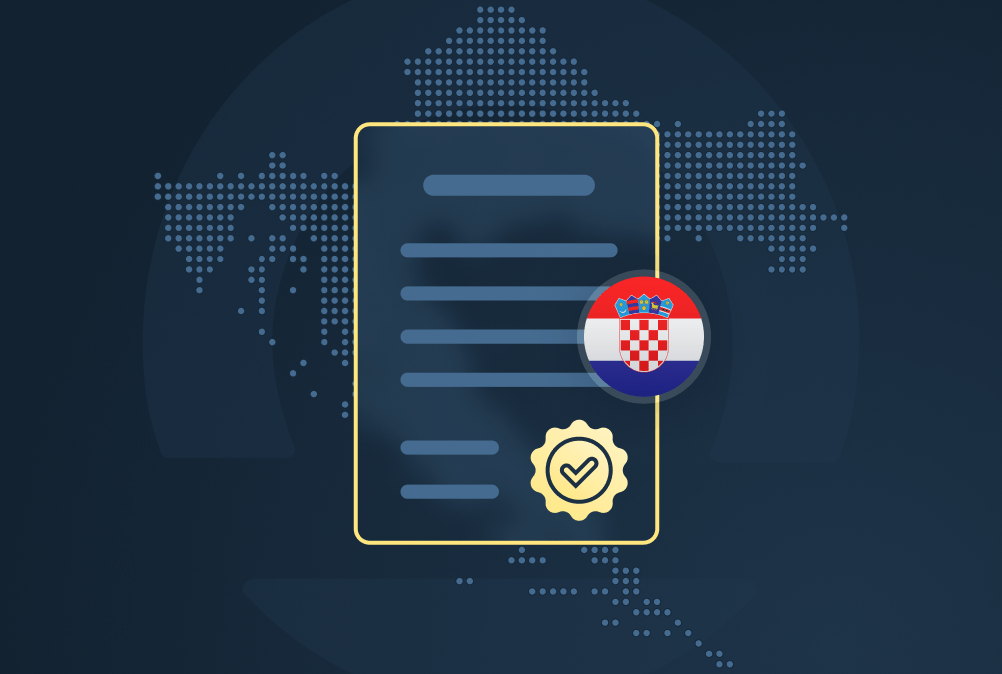Key Takeaways
- A License for Temporary Employment Agency (gencija za privremeno zapošljavanje) in Croatia is mandatory for any entity operating in the temporary staffing sector, ensuring they comply with local labor laws and regulations.
- This license is crucial for Employer Of Record (EOR) projects, as it ensures compliance with Croatian labor laws, reducing legal and financial risks for foreign companies.
- Companies must adhere to strict regulations, including financial solvency, transparency, and fair employment practices, to maintain the license.
- Failure to comply with these regulations can result in severe penalties, including fines, license revocation, and reputational damage.
- Businesses hiring in Croatia face limitations, including a 3-year restriction on the duration of temporary contracts, necessitating careful navigation of these regulatory boundaries.
What is the License for Temporary Employment Agency in Croatia?
“Agencija za privremeno zapošljavanje” is Croatian for “Temporary Employment Agency”. This term refers to organizations or businesses that specialize in hiring workers on behalf of other companies for temporary positions. These agencies act as intermediaries between employers looking to fill short-term vacancies and individuals seeking temporary employment.
In Croatia, a License for Temporary Employment Agency (Agencija za privremeno zapošljavanje) is a legal prerequisite for any business that wishes to engage in the provision of temporary staffing services.
This license is issued by the Ministry of Labor, Pension System, Family and Social Policy, following a detailed application process that assesses the agency’s compliance with local labor laws and regulations. The purpose of this license is to ensure that agencies operate within a legal framework that protects the rights of temporary workers, ensuring they receive fair wages, working conditions, and social benefits.
Why is this license relevant for EOR projects?
Employer of Record (EOR) projects, where a company employs staff on behalf of another business, are particularly sensitive to the legal frameworks of the countries in which they operate.
In Croatia, having a License for Temporary Employment Agency is essential for EOR providers to legally employ and manage staff on behalf of foreign companies. This license signifies compliance with Croatian employment laws, which is crucial for mitigating risks related to labor law violations, ensuring that EOR projects operate smoothly without legal entanglements or financial penalties.
What are the regulations companies need to follow to remain compliant with local laws?
To obtain and maintain a License for Temporary Employment Agency, companies must comply with several key regulations:
01. Financial solvency: Agencies must demonstrate financial stability to ensure they can meet their obligations to employees and clients.
02. Transparency and reporting: Regular reporting on employment activities, financial performance, and adherence to labor laws is required.
03. Fair employment practices: Agencies must guarantee that temporary workers receive equal pay for equal work, appropriate working conditions, and access to social security and benefits, mirroring the entitlements of permanent employees.
04. Worker rights protection: Ensuring the protection of workers’ rights, including the right to collective bargaining, nondiscrimination, and protection against arbitrary dismissal.
What are the consequences of non-compliance for businesses operating in Croatia?
Non-compliance with these regulations can lead to severe consequences for temporary employment agencies, including:
o1. Fines: Significant financial penalties can be imposed for breaches of labor laws.
02. Revocation of license: In severe cases, the agency’s license can be revoked, effectively ceasing its operations.
03. Reputational damage: Legal issues can tarnish the agency’s reputation, impacting its ability to attract clients and skilled workers.
What are the limitations of the License for Temporary Employment Agency?
While the License for Temporary Employment Agency facilitates the operation of temporary staffing services, there are limitations:
01. Contract duration: The contract duration is governed by the Croatian Labor Act, which stipulates that the total duration of temporary employment contracts between a temporary employment agency and a worker, for the same employer, cannot exceed a period of 3 years. This includes any extensions or successive contracts within that timeframe.
02. Scope of operations: The license may specify the types of industries or sectors where the agency can supply temporary workers, limiting its operational scope.
03. Quotas and restrictions: The government may impose quotas on the number of temporary workers an agency can employ, affecting scalability.
Horizons has an incorporated entity in Croatia, and is authorised to conduct business operations in Croatia. Speak to a Sales Team Member to learn more.















